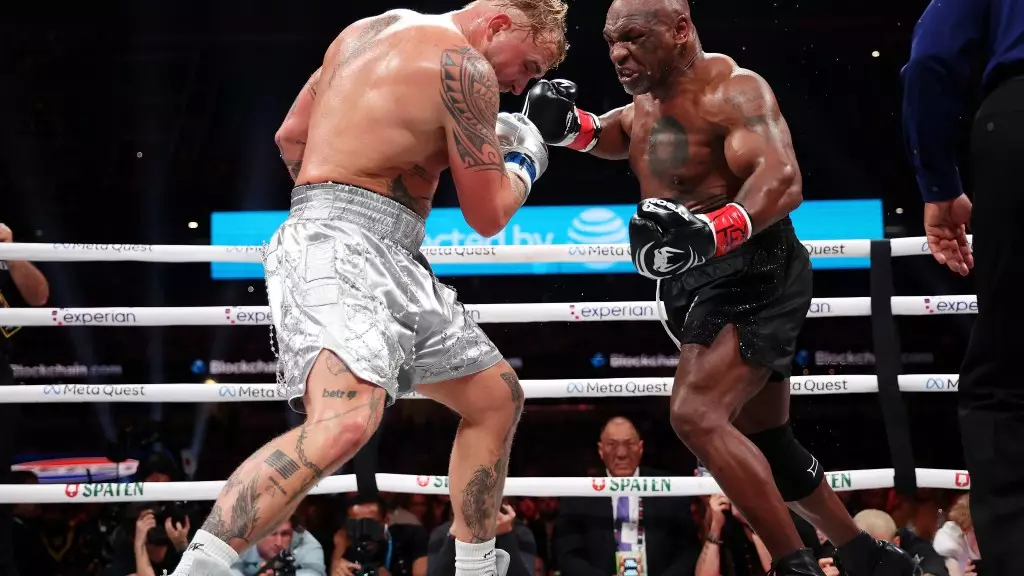In a highly publicized boxing match, Mike Tyson, the former heavyweight champion, faced off against social media sensation Jake Paul. At 58 years old, Tyson engaged in an unexpectedly competitive bout against the 27-year-old Paul at AT&T Stadium. Although the final verdict was a unanimous decision favoring Paul, Tyson’s performance, particularly in the early rounds, raises a multitude of questions about age, skill, and the evolving nature of boxing entertainment.
Dana White, the president of the UFC, openly admitted his initial skepticism regarding Tyson’s ability to compete at his advanced age. Post-fight, White’s comments reflected not only relief but an apparent reversal in his judgment. Observers noted that Tyson appeared to retain much of his iconic boxing prowess, with effective movement and notable resilience in the ring. His ability to hold his ground against a younger opponent left many, including White, reconsidering their pre-fight predictions.
While many expected Tyson to be overmatched by Paul, who has made a name for himself in celebrity boxing, the fight showcased Tyson’s still-potent skills. However, as the rounds progressed, it became evident that the effects of age were catching up to the boxing legend, resulting in a slower pace as the match unfolded. Critics might argue that Tyson’s slowing reflexes and stamina reflect the inevitable decline that accompanies aging athletes, but the early rounds demonstrated that he still has the heart of a champion.
The bout between Tyson and Paul has sparked discussions about the growing trend of celebrity boxing, where entertainment often takes precedence over traditional sporting competition. Tyson’s presence in the ring undoubtedly brought an element of gravitas; however, it also raises questions about the nature of these matchups. Many fans are torn between their nostalgia for Tyson’s past glory and the nature of Paul’s rise in the boxing world.
Post-fight comments from Paul suggest he intentionally withheld his full capacity to avoid inflicting harm on his opponent. This admission underscores the theatrical aspect of such contests, where the lines between sport and spectacle blur. The essence of boxing—an intensely competitive sport—is challenged when motivation hinges on entertainment rather than competitive integrity.
Even in his twilight years, Tyson remains an alluring figure capable of drawing significant viewership and generating substantial revenue for events. White’s remarks highlighted financial implications, succinctly noting that the atmosphere surrounding Tyson’s name guarantees earnings regardless of the outcome. This reality speaks volumes about the economics of the boxing world today, where the allure of a once-great champion can overshadow even the potential skill gap between fighters.
Ultimately, the spectacle of Tyson versus Paul reflects broader trends in combat sports—where age, past achievements, and perceived entertainment value increasingly intertwine with traditional sporting narratives. As the boxing landscape evolves, questions linger about what it means to be a fighter in modern times and the future of competitive boxing amid a surge of celebrity matchups.

